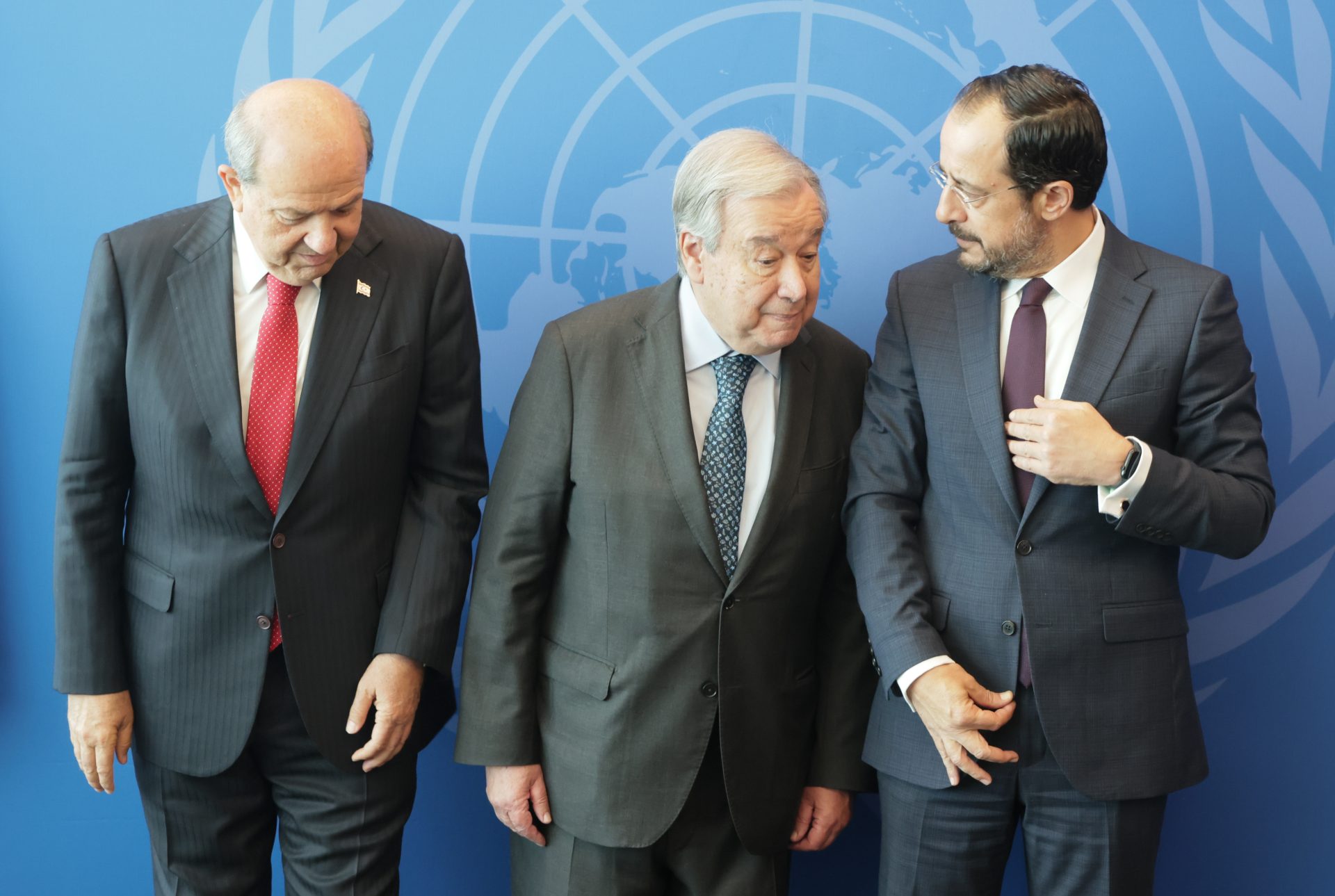A two-state solution is too inflexible and too terminal
Rumours about the death of BBF have been greatly exaggerated. A bizonal bicommunal federation is both possible and desirable. It is a together-but-apart model to restore peaceful coexistence and insulate Cyprus from the geopolitical turbulence that surrounds it in the east Mediterranean. What’s not to like about BBF other than its acronym for which apologies are in order.
A very large number of Turkish Cypriots voted for BBF in the only referendum ever held on the issue in 2004, and it would be a great pity – and a big mistake – to leapfrog BBF for a two-state solution, without ever knowing what it would have been like to be in a federal Cyprus within the EU.
BBF with political equality was adopted as the model for a solution to the Cyprus problem in 1990-91 in two UN Security Resolutions that were incorporated into the preamble to Protocol 10 attached to Cyprus’ treaty of accession to the EU of 2003.
A BBF in Cyprus would have to be a bespoke system to suit all Cypriots. Unlike many federations that were created from clusters of states that joined together for more power and influence, BBF was conceived in difficult times to serve a different purpose.
It was a compromise to reflect the demographic realities after the tragic events of 1963-1974, replace the failed bicommunal state that broke down in 1963 and adjust land and property accordingly. It is the least worst option because neither a majoritarian unitary state nor a two-state solution is as pragmatic or as flexible.
The addition of political equality to the BBF model in 1991 makes explicit what is implicit in federal systems. Political equality and the separation of powers between constituent states and the federal centre are of the essence of federalism.
What political equality envisages in Cyprus is not numerical equality, but the consent of both communities to the new federal state of affairs, their effective participation in the federal government and checks and balances to ensure no measures are adopted against the interests of either community.
Those are the broad outlines of BBF from which it is apparent that its legality is well-grounded and that its great advantage is flexibility.
By contrast the two-state solution proposed by the Turkish side since 2020 after the election of Ersin Tatar as “president of the Turkish Republic of Northern Cyprus (TRNC)” is too inflexible and too terminal.
It substitutes sovereign equality for political equality and would require the RoC unconditionally to give up sovereignty over a huge chunk of its territory from the outset, which is absurd, but for the fact that it may be a maximalist Trumpian tactic. Strictly, sovereign equality has a different meaning in international law than the one the Turkish side believes it has. It is the equality that exists between independent member states of the UN. All states – big or small, rich or poor, powerful or not – are equal in terms of their rights and obligations under the UN Charter.
What Ersin Tatar means by sovereign equality is equality with the RoC on the basis that the Turkish Cypriots were co-founders of the RoC and that the Turkish Cypriot community should have the same sovereign right to recognition internationally as the Greek Cypriot community has had since 1964 as the recognised government of RoC.
The position under Cyprus’ constitution and the treaties that set up the RoC is that its government was indeed supposed to be bicommunal but when the constitution broke down in 1964, the UN and most states recognised the government of President Makarios as the government of RoC.
However, even if his government were unconstitutional, in international law that is regarded as an internal matter that could not affect the RoC’s international status in light of the recognition accorded to it.
Quite apart from the “TRNC’s” lack of international recognition, there are other reasons why the “TRNC” could notbe recognised internationally, The most important reason was identified by the International Court of Justice (ICJ) in the Kosovo case in 2010. It said at paragraph 81 that the reason why the “TRNC’s” unilateral declaration of independence (UDI) in 1983 as well as those of Southern Rhodesia in 1965 and Republika Srspka in 1992, were declared illegal by the UN Security Council, was not because they were unilateral, but because they stemmed from “an unlawful use of force or other egregious violations of norms of general international law, particularly those of a peremptory character.” In other words, international law cannot legitimise the acquisition of the land of another state by the use of force.
It would be different if the RoC were to agree to relinquish sovereignty over part of its territory to allow for the creation of a Turkish Cypriot state in northern Cyprus. But that is an absolute nonstarter because the RoC would never agree to relinquish sovereignty over any part of the island of Cyprus because its sovereignty over the whole island of Cyprus is its most valuable asset.
Promoting a two-state solution, which is partition by another name, is also problematic for Turkey even though it seems untroubled and is openly supporting partition contrary to article II of the 1960 treaty of guarantee.
It would be interesting to know if the UK and Greece have consulted with one another and made representations under article IV of the treaty calling on Turkey to stop promoting partition, like Turkey consulted with UK when the Greek military junta attempted union with Greece in 1974.
It is contrary to the treaty for the guarantor powers directly or indirectly to promote union with Greece or partition.






Click here to change your cookie preferences